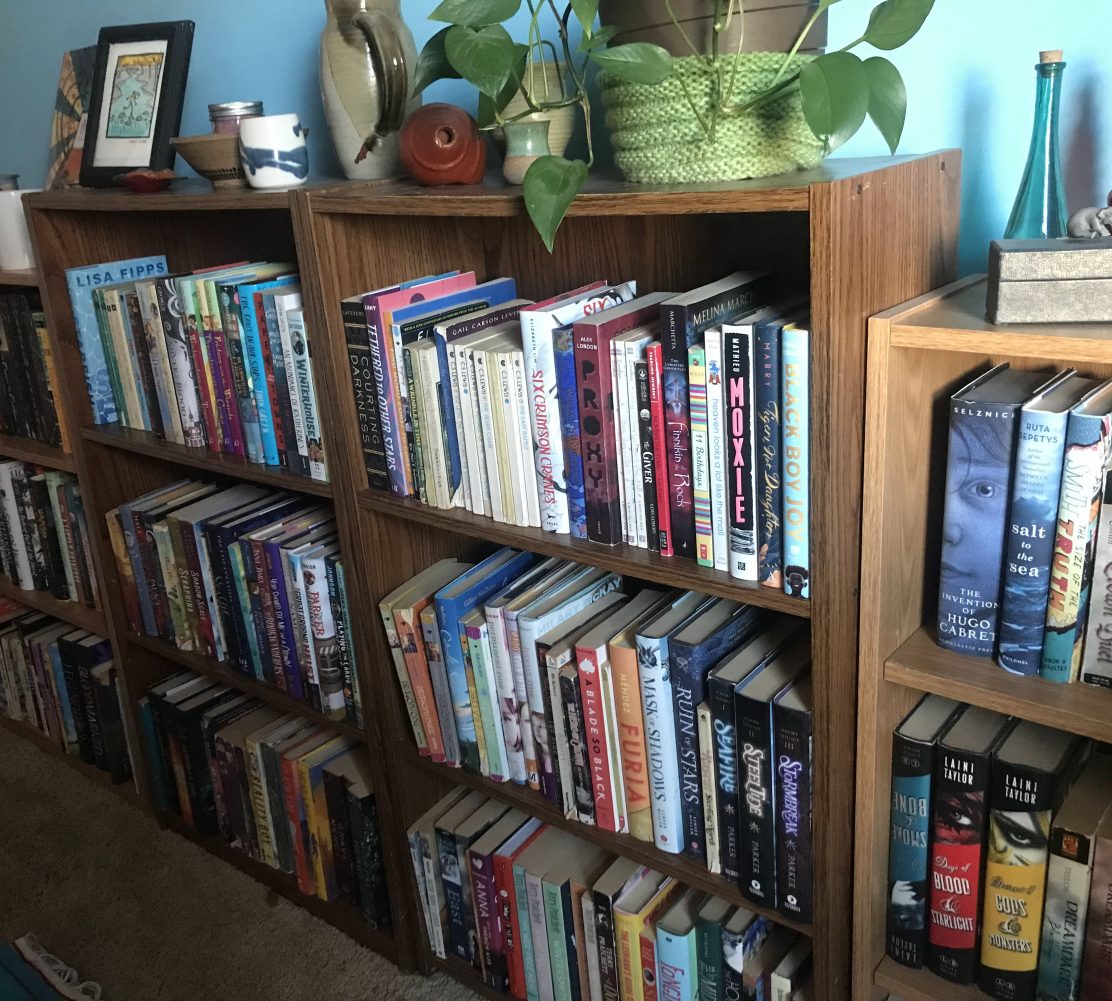by Robin Gow
First sentence: “Dear Mothman, I pretended to believe in you for Lewis.”
Support your local independent bookstore: buy it there!
Content: The font, which looks like handwriting, is sometimes hard to read (but I’m old), and it talks about the death of a friend. It’s in the Middle-Grade section of the bookstore.
Noah’s best friend, Lewis, has died in a car accident, and Noah is not taking it well. They were inseparable, and it seems like the adults in Noah’s life don’t quite know how to handle his grief. So, Noah decides to take on Lewis’s idea for the sixth-grade science fair: proving Mothman exists. So, he starts writing letters in a journal and leaving them for Mothman to find. While proving this, Noah not only makes new friends (and finds a girlfriend), he gets brave enough to tell his parents and teacher that his pronouns and name are not what he was born with. It’s a journey in every sense of the word.
I’ve heard excellent things about this one since it came out and I thought I’d give it a try. It’s a lovely novel in verse, and I think it deals with grief really well. This means, though, that’s is quite a sad book. Noah’s dealing with a lot, and while the adults are trying, they’re not always succeeding. I’m not sure how I felt about it falling over into the magical realm, but as a book about a kid dealing with his own identity as well as the loss of his anchor, it was an excellent story.










